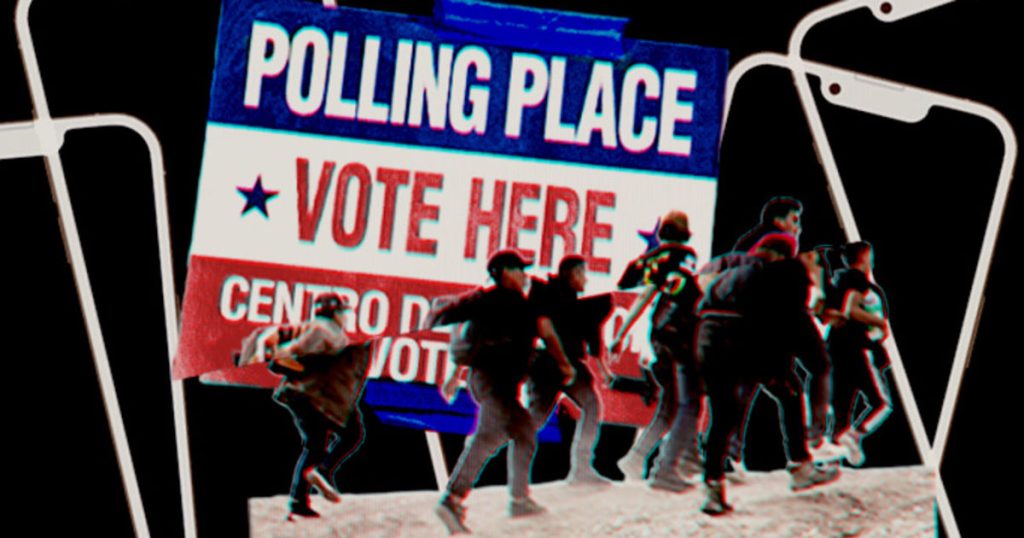The spread of misinformation regarding migrants registering to vote in Pennsylvania, Arizona, and Texas gained traction on social media platforms after a misleading post on X was shared by Elon Musk. Despite efforts by election officials and fact-checking organizations to debunk the false claims, the narrative continued to circulate. The post misrepresented data from the Social Security Administration, suggesting that nearly 1.9 million individuals had registered to vote using only the last four digits of their Social Security numbers, leading to concerns about noncitizen voting. However, federal laws dictate that only U.S. citizens are eligible to vote in federal elections, and noncitizens with Social Security numbers are still banned from voting.
Research has shown that misinformation related to noncitizen voting often gains traction during times of crisis, such as the increase in migrants seeking to cross the U.S.-Mexico border. These false claims are often based on misleading evidence that includes a grain of truth to make them more believable. Content moderators on social media platforms face challenges in combating the spread of misinformation, even after it has been fact-checked. Platforms like X and Facebook have been used to amplify false claims, making it difficult for fact-checking measures to keep up with the rapid spread of misinformation.
While efforts are made to correct misinformation, the underlying beliefs and attitudes that contribute to the spread of false narratives remain challenging to address. In the case of claims about noncitizen voting, there is often a mix of anti-immigration sentiments, partisanship, and distrust of the electoral system that fuel the dissemination of misinformation. Organizations like the New Pennsylvania Project are working to counteract the impact of misinformation on voter engagement and ensure that accurate information is provided to the public.
Political actors, such as Donald Trump and Georgia Rep. Marjorie Taylor-Greene, have also capitalized on misinformation about voter registration to further their own agendas. Claims about illegal voter registration have led to increased scrutiny of voter rolls in states like Pennsylvania, where Republicans have focused on addressing alleged issues with voter registration lists. However, there is no evidence to suggest that bloated voter rolls lead to voter fraud, raising concerns about the motivations behind efforts to target voter registration processes.
Efforts to combat misinformation on social media platforms have included fact-checking measures and labeling false information to reduce its distribution. However, challenges remain in detecting and addressing misinformation, particularly when it is shared through screenshots or other methods that evade automated detection processes. As misinformation continues to spread, organizations and individuals are working to counteract its impact on public perception, voter engagement, and the integrity of the electoral process.


